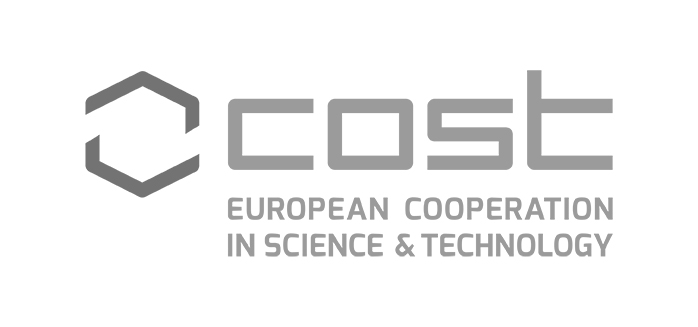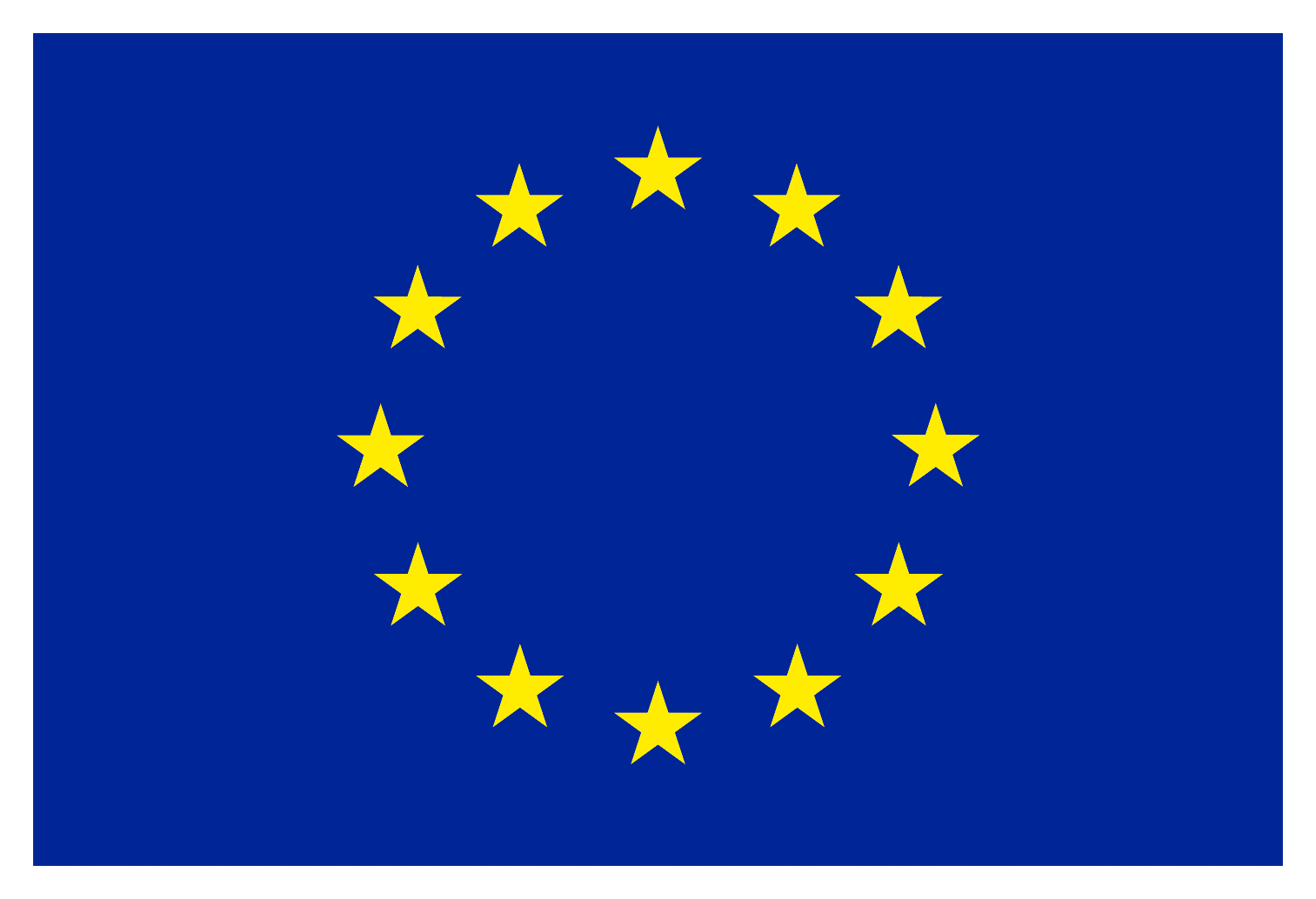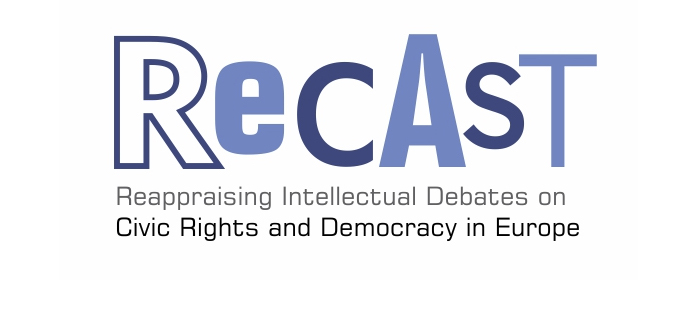Training School 2019 Edition
COST Action CA 16211 RECAST
Reappraising Intellectual Debates on Civic Rights and Democracy in Europe
Training School in the Humanities and the Social Sciences
Politics, the Rule of Law and the Facets of Democracy
Norwegian Institute at Athens
5–7 November 2019
Convened by Jan Harald Alnes and Sia Spiliopoulou Åkermark, the second edition of the RECAST Training School focuses on the relationship between the rule of law and democracy while continuing to use the building block tools of the RECAST research network, namely 'practices’, ‘languages and ideologies’, 'concepts' and ‘debates'.
We witness today possibly contradictory trends. Rights are often included in long-standing constitutional lists (bills) of rights. However, such rights are currently being limited or even abolished through parliamentary decisions and democratic procedures. The practice of civic democratic rights may be in tension with other rights, as we witness in debates across Europe on refugees and terrorism, and on freedom of expression and association. We are also witnessing arguments that the rule of law, in general, and human rights, in particular, are functioning as ‘straightjackets’ to democracy and to majority rule.
Sessions of this second edition of the Training School aim to address questions such as how can this present-day dynamic and discourse on the uneasy relation between democracy and the rule of law be understood? How has the relationship between the rule of law and democracy looked like in the past? What are the ideological and conceptual underpinnings of this relationship? Is democracy more vulnerable during periods of economic crisis? How can a rule of law be upheld at times of conflict or economic crisis? Are rights and the rule of law to be understood as ‘luxuries’ for those having adequate resources or are they tools for those marginalised or excluded? Are issues of the rule of law a tool in the hands of the occasional elites? How can we understand the importance of formal, substantive and procedural rule of law today?
Please find below the programme (posted after the selection of trainees) and the syllabus.
Programme
Syllabus
Seminar 1
Prof. João Cardoso Rosas, University of Minho
The Populist Attack on Human Rights: Political Struggles and Intellectual Debates
Until very recently, Human Rights were a secure basis for political argument both in Europe and in America, in the tradition established by the Universal Declaration (1948) and reinforced by post-war constitutionalism and internationalism. After the Cold War, the threat on Human Rights was usually located in the so-called 'Asian Values' and in China’s growing global power, or in some radical versions of Islamism and their direct challenge to the West. However, the situation changed dramatically and the attack on Human Rights is now also one of the main features of populist and authoritarian political movements and governments precisely in political communities that used to describe themselves as strongholds for individual rights and the rule of law, such as the European Union and the United States. In this lecture, I will start by describing the content of these attacks and the political struggles they are associated with. Furthermore, I will summon intellectual debates on Human Rights in order to show that philosophers and political theorists developed strands of critique that are incorporated in the populist and authoritarian views, but they also provide arguments for defenders of democracy and Human Rights.
Seminar 2
Dr. Laura Alipranti-Marotou, University of Athens, Emeritus Research Director, National Centre for Social Research (EKKE)
Female Migration in Greece: Integration Process and Citizenship
While immigration in Greece started in the early 1980s, it was only in the early 1990s that significant numbers of economic migrants started arriving and Greece became a new destination country. An additional important feature of the immigration process in Greece is the large proportion of women who migrate alone in search of employment and better conditions of life. With regard to the integration process of migrant women many studies indicate that issues related to citizenship are crucial. In particular, the exclusion of women from social goods and their non-active participation in both social and political life in the countries of residence are of paramount importance.
These issues are key indicators used internationally to measure the degree of social integration of economic migrants. In the context of the problematic for the social integration of migrants in new immigration countries a survey on a sample of 600 economic women migrants who had residence and work permit was conducted by EKKE (National Centre for Social Research) in 2010 financed by the European Integration. In the framework of this lecture we will try to present current literature on the problematic of integration and citizenship of female migrants into the host society. In addition, we will present some outcomes of the above survey related to the integration process of women migrants living legally in Greece and highlight issues regarding the interest of immigrant women in political life, as well as their active participation in collective social and political activities.
Seminar 3
Assist. Prof. Joris Gijsenbergh, Radboud University, The Netherlands
No One is Above the Law: Whistle-Blowers and Political Misconduct
This session examines the changing and contrasting ideas about the tension between democracy and the rule of law, by studying attitudes towards whistle-blowing in the second half of the 20th century. The rule of law gives elected politicians the authority to devise the political rules. At the same time, it requires that politicians follow those rules and that they are publicly accountable. Whistle-blowing civil servants claim that they should monitor whether politicians abide by the law, by revealing political misconduct to the public. However, that is controversial. Do unelected public officials have the right or even moral duty to report their political masters? Or is whistle-blowing an illegal breach of discretion? This session studies how these normative questions have been tackled in the past. Some of their contemporaries praised whistle-blowers as democratic watchdogs, because they defended either the rule of law, or higher moral principles. Their opponents countered that public officials were not above the law. As a result, whistle-blowing sparked public debates about the essence of democracy and of the rule of law. My historical perspective is a valuable addition to the normative focus of the social scientists who currently dominate the scholarship on whistle-blowing and transparency.
Seminar 4
Prof. Jennifer Todd, MRIA, University College Dublin
Democracy and Rights in Divided Societies: Consociation, Conflict and the ‘Concertina Effect’
This presentation begins with discussion of the problems posed for theorists of democracy and rights in nationally-divided societies. In these societies majoritarian democracy and the very unity and boundaries of the polity are seen (by some) as unjust resources for the power of some against others. It discusses why power-sharing is now the internationally accepted way to manage such conflict democratically, and how consociationalist theory justifies this. It shows that earlier critiques are not relevant to ‘liberal complex consociation’.
In its second part, the presentation looks at how consociationalism actually functions democratically, arguing that inductive analysis is of key importance in assessing some of the theoretical arguments. Through a short overview of the trajectory of consociation in two of its successes – Northern Ireland and the Republic of North Macedonia – we see a ‘concertina effect’, where after hard-won period of stability polarization re-starts. Why? And what follows for theories of consociation, concepts of democracy and pluralist, multi-culturalist and cosmopolitan norms?
Finally, the presentation asks how universal norms of democracy and universal rights should be situated in light of particular circumstances: what would a situated cosmopolitanism, a dialogic democracy (or demoicracy) look like?
Seminar 5
Prof. Manuel Toscano, University of Málaga
Democracy, Constitutionalism and the Rule of Law
My talk will address the relationship between democracy, constitutionalism and the rule of law. Populists and proponents of the so-called ‘iliberal democracy’ argue that liberal constitutionalism cannot be an obstacle to the democratic expression of the will of the people. I want to discuss whether this opposition can be sustained and if it does not rest on mistaken assumptions or confusions about the rule of law, the sense of the Constitution and the very idea of democracy.
In the first place, I would like to frame this opposition in the current diagnoses about what some authors have called ‘the populist moment’. The same expression of the opposition between democracy and liberal constitutionalism, as some political actors claim, should be understood as a significant symptom of the crisis of liberal democracy nowadays. Is it possible to think of an illiberal democracy? This would amount to a democracy without the institutions of the rule of law or constitutional safeguards.
In the second part of the talk, I will consider the arguments presented in the famous ruling of the Supreme Court of Canada on the question of the secession of Quebec (1998). The sentence offers an incisive and highly relevant examination of the principles inspiring a democratic constitutional regime. I will dwell on the analysis of the rule of law and constitutionalism since it allows us to examine closely how they relate. As the Canadian judges conclude, it is not possible to understand democracy apart from the rule of law and constitutionalism.
Seminar 6
Prof. Annelien de Dijn, Utrecht University
Democracy and the Rule of Law
This lecture investigates the relationship between democracy and the rule of law from the perspective of intellectual history. We shall see that the relationship between these two political values is by no means straightforward: throughout history, the concept of the rule of law has often been invoked to legitimate elite rule rather than democracy.
Seminar 7
Prof. Jan Harald Alnes, UiT The Arctic University of Norway, Tromsø
Some Principles of Discourse and Argumentation
The participants at Politics, the Rule of Law and the Facets of Democracy approach the key-concepts of politics, rule of law and democracy in a variety of ways and through different theoretical traditions and frameworks. A basic aim of our TS is to encourage communication that crosses standard disciplinary bounds. For a number of reasons, successful interdisciplinary communication is hard to achieve, and it is quite demanding to write an essay that speaks to different scholarly traditions. A major requirement is to clarify the meaning and significance of one’s own basic terms and assumptions. I introduce some issues from informal logic with the aim of encouraging reflections over the principles of interpretation and the use of language in the context of our Training School.
 |  |  |  |



